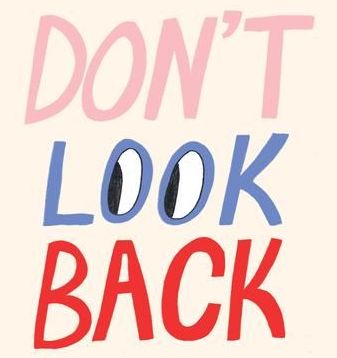

Centre • Bath
Breakfast
Talks
Socials
Run Club
Crafts
Music Events
Summer Party
For Hire
Breakfast
Talks
Socials
Run Club
Crafts
Music Events
Summer Party
For Hire
Breakfast
Talks
Socials
Run Club
Crafts
Music Events
Summer Party
For Hire
Breakfast
Talks
Socials
Run Club
Crafts
Music Events
Summer Party
For Hire
Breakfast
Talks
Socials
Run Club
Crafts
Music Events
Summer Party
For Hire
Breakfast
Talks
Socials
Run Club
Crafts
Music Events
Summer Party
For Hire

How to Get Started as a Freelance Copywriter
Before the internet, to be a copywriter was to be a ‘salesman-in-print’: writing advertising slogans, scripts for TV commercials and direct marketing materials. While the opportunities to wield words in powerful ways which persuade the audience in question to buy the advertised products or services, the role of a copywriter has evolved and diversified as business and media has moved online.
Today, with the advent of Google, Amazon, and Facebook the demand for copywriters has never been greater, as the pace at which people explore new ideas, media and brands accelerates, so does the need for people to produce online written content to engage them.
What does a copywriter do?
Whether you’re a creative oozing with ideas, a writer through-and-through or a marketing professional – copywriting is an attractive and challenging career. You can work in-house for a brand to market their product or services, for an agency which works to produce advertisements and marketing campaigns for their clients, or freelance, which gives you the flexibility to choose your own clients, whether it’s a brand or an agency.
What type of copywriter can I be?
As we’ve touched on already, copywriting is a profession which has evolved over the past decade beyond pure sales in writing to present a diverse range of specialisms. Some offer more opportunities to be creative, while others present the chance to be a real specialist on one particular subject. There are lots of different types of writers, but to get you started:
1. Business copywriter
A general term for what is a specialist copywriter on a particular subject. A good example here is a medical copywriter. They communicate complex scientific or medical information accurately, with no room for misinterpretation. If you’ve trained in a particular field or are willing to develop specialist knowledge, copywriting for law, telecoms, insurance or finance businesses will earn you a tidy salary.
2. Creative/Brand copywriter
Creative/Brand copywriter’s help give brands and businesses an entire personality, helping them market their product or services to their desired audience(s). Writing copy as a creative copywriter is about telling a story in an engaging way. If you want to explore how creative concepts can sell or communicate ideas – the creative route could be for you!
3. Advertising copywriter
The traditional copywriting profession, writing advertising copy is still just as relevant and as lucrative today as it was when the first commercials were printed on billboards, and broadcast on radio or television. If you’ve got a knack for creating catchy or memorable slogans, advertising is for you.
4. SEO/Digital copywriter
A profession created, for the most part, by Google: SEO copywriting uses data and a knowledge of website user behaviour to help businesses reach their desired audience through search engines. They write online content for webpages to help businesses market their product or services by writing to target the search terms people use when trying to find information, products or services online.

What skills do I need to be a copywriter?
Getting started in copywriting isn’t easy, and you can expect to write large volumes of copy for low rates at the start of your career. Over the years as you hone your craft, you’ll write less with the more of the powerful persuasion which earns the higher rates.
Useful skills for being a copywriter:
1. Curiosity/inherent nosiness
The ability to ask questions, and get stuck into understanding the who, what, where and why is essential if you’re going to be a copywriter. You need to do the research and thinking necessary to produce ideas and words which command people’s attention.
2. Empathy
It must never be forgotten that when you are writing, you are writing to communicate with a person. Being able to empathise with human needs and desires is essential to writing compelling copy.
3. A good grasp of the English language (obvious, but nevertheless, must not be overlooked)
Words are your chosen weapon, and so you simply must be good with them. Increase your confidence by reading and writing everyday, and learn to be meticulous when proof-reading and editing your work. Everyone makes mistakes, but you will be expected to be the stalwart of good grammar and the final filter for any copy errors before they are published.
4. Ability to see the wood for the trees (simplify complexity)
Don’t say it in 10 words when you can say it in two. The true value of a copywriter is their ability to communicate ideas with complete clarity. However much you feel attached to what you’ve written, see if you can simplify it further.
5. Adopt an attitude of continuous improvement
Copywriting is a craft which takes many years to master; the best writers learn to take constructive criticism, and don’t get disheartened when finding the right words feels elusive in some instances.
What’s the difference between a copywriter and content writer?
It’s worth discussing here that while the volume of websites online have increased the opportunities for commercial writers, the ‘content writer’ role is one which should be approached with caution. While in the most part content writing is used interchangeably with copywriting in today’s job ads, the insatiable need for fresh online content has resulted in the proliferation of poorly paid and undervalued content writer jobs: in which you’ve been hired just to fill webpages with set volumes of words at a consistent rate.
When your words are seen as just online ‘filler’, they aren’t valued for their ability to persuade or sell, but are seen as a cheap commodity which needs to be produced at the lowest rate in the fastest time. While some businesses appreciate the true value of a good content writer in their marketing teams, beware businesses where content writers are woefully undervalued and underpaid.
Why go freelance?
While there are certainly perks to working in-house for a brand or creative agency, copywriting is a profession which lends itself very well to a successful freelance career. The type of work it is often means, apart from meetings with clients, you can work independently from remote locations, rather than being chained to the same desk in an office.
We asked the two freelance copywriters in Gather Round, at two different stages in their career, to share their tips for taking the plunge, and going freelance.
Tips from a Brand Copywriter
Kendra Futcher has been a freelance copywriter for over 15 years, helping people and brands find their voice. A resident member at Gather Round, we asked her to give us a quick overview of the profession, and share any words of advice for those who are just getting started in copywriting.
As a Brand Copywriter, I wear three hats: anthropologist, strategist, writer. I’m not just thinking about what to say, but how to say it. This is where messaging and tone of voice come into things.
My job is to ask:
1. Who is the audience(s)?
2. What are they like?
3. What’s their relationship with the company/brand?
4. How does the brand want to be perceived?
5. How does its ‘personality’ impact on its tone of voice?
What about the key messages? What are the main ’takeaways’ for the reader? Where do they come within the piece? What structure will have the most impact?
There is so much more to it than just writing words.
Similarly when writing for web, we need to consider how people interact with a website – use headlines to draw people in, minimise blocks of copy and help people to navigate the information.
Many copywriters transition into the job having done something else within a marketing or project management capacity. This means you may not consider yourself to be a ‘creative’.
As someone who did just this, I have learned that creativity is a muscle you can flex – and over time, you can evolve to think conceptually and creatively.
How to flex that creative writer’s muscle:
1. Get to know local agencies and ask if you can work on live briefs
2. Shadow or work with an established writer – get involved with whatever you can and soak it all up
3. Challenge yourself by writing poetry
4. Sign up to a D&AD workshop
5. Have a go at the test briefs on the D&AD website
5. Go to copywriting conferences
6. Read lots of books
7. Collect writing that you like
8. Get involved in Twitter debates about grammar (yes, these are a thing!)
9. Go to talks, workshops and peer-led learning events whenever you can
10. Remember, it’s a skill we are constantly honing – confidence comes over time

Tips from an SEO/Digital Copywriter
Ally Elphick has been copywriting in a professional capacity for over 8 years, but only recently took the plunge to see how she could use her combined experience in digital marketing and copywriting to offer her services as a freelancer. A flexi-member at Gather Round, we asked her to give a quick overview of her day-to-day, and for some tips for those copywriters looking to make the leap.
As a SEO/Digital Copywriter, my job is to combine my knowledge of digital marketing platforms and how people use websites, social media channels and other online media with words that help the brand reach, engage and connect with their desired audience to meet their goals. This means some days I’m writing a series of social media posts for an online marketing campaign, other days I’m writing web pages and articles to help that brand drive more relevant traffic to their website.
When you’re just starting out, it can be EXTREMELY daunting. Simply because, you don’t know where to find great freelance copywriter jobs which aren’t going to pay you pennies for words and leave you feeling like a student scraping the barrel (again!). Yes there are the Upworks of this world, but for work where your writing is valued, I wouldn’t recommend relying solely on these platforms. So, where can you find great freelance copywriting jobs?
– Your network. Don’t be shy, and reach out to your existing connections to say “I’m freelance now!”. You’ll be amazed by the number of people who are busy with running their business, who could do with a bit of support updating their website, or know someone else who does.
– Twitter. Search #copywritingjobs, #writingjobs and follow people who regularly share jobs on their accounts such as @procopywriters and @sianysianysiany.
– Freelance Writing Jobs. Her Twitter account posts many, but Sian Meades-Williams’ excellent newsletter quite literally puts all the best available freelance jobs posted online through her network and other key platforms you should pay attention to, like TheDots and Cision Jobs, in your inbox every week. Sign up here.
– LinkedIn. As the virus-who-shall-not-be-named made remote work the new normal, there has been an increased number of remote, contract or freelance roles posted on LinkedIn.
– Co-working community. A co-working space can seem like a big expense to fork out for when you’re just starting out, but your monthly investment can reap huge rewards. Not only does it banish the loneliness and insecurities which can curse many freelancers spending their days on their own, but the connections you’ll make will naturally lead to recommendations, collaborations and work!

With a thriving and active community of like-minded individuals, we’re more than just a place to work. Discover our private studios and shared spaces in Bristol and Bath

Our unique and varied spaces in Bristol and Bath cater for keynotes, networking, workshops, rehearsals and much more.
Find out more
Your specialist delivery avian is now in transit. We’ll be in touch when he reaches us.